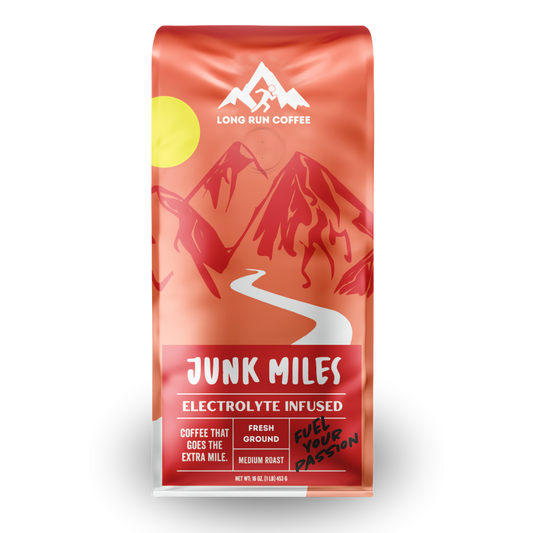
When Hard Gets Easy
5 Minute Read
Doing hard things is what makes us happy. It’s a fact of life!
Whether we realize it or not, it’s why we all fell in love with running. Chasing challenges that we perceive as difficult brings a sense of accomplishment, growing and compounding over time. This is how passions are built.
But as we run more and more, what once felt hard will inevitably become easy. And what should we do in that situation? Does it still deliver the same benefit? Or does the human brain need something to chase?
The Science of Accomplishment
When we accomplish something challenging, our brains reward us with a “runner’s cocktail.” This is not a real thing, we just made it up. The “runner’s cocktail” is a mixture of dopamine, serotonin, and endorphins that is released in our brains, making us feel… all the good stuff.
These chemicals boost our mood, reduce stress, and keep us coming back for more. It’s a built-in reward system that encourages us to keep pushing our limits. This is the essence of the "runner’s high," that euphoric feeling many of us experience after a good run.
But over time, as we adapt and improve, those once-hard tasks start to feel easier. The brain's reward system isn’t as activated by the same level of effort because our training is no longer a challenge. So what happens then?
The Need for New Challenges
At Long Run, we believe that relative difficulty and having something to work hard towards is vital for Fueling Our Passion. When things get easy, it’s time to up the ante. We need to move the goalposts and set new, harder goals to continue reaping the psychological benefits of accomplishment.
But there’s a balance to strike. It’s healthy to seek challenges, but constantly adding "more" isn’t always possible or sustainable. For instance, if you’ve just finished a 250-mile race, the next logical step isn’t necessarily a 500-mile race…. as tempting as that may sound. There are limits to physical endurance and practical constraints.
More, Better, New
So, what do we do when we’ve hit a significant milestone? We follow this framework: "More, Better, New."
More: Start by asking yourself if you can do more. If your current training or race distance feels too easy, increase it. This could mean longer runs, more frequent training sessions, and training for a race distance that is longer than what you’ve grown used to.
Better: If more isn’t feasible, aim to do it better. Improve your pace, technique, or efficiency. Analyze your performance and find areas where you can make small but meaningful improvements. This keeps you engaged and motivated without the need to increase the physical demand drastically.
New: When more and better aren’t options, it’s time to try something new. Diversify your activities. If you’ve mastered running, why not try cycling, swimming, or an Ironman? The novelty of a new challenge can reignite your passion and bring back that sense of accomplishment.
Mental Strategies for Adaptation
It’s not uncommon to feel a bit down after completing a big challenge. The post-race blues are real. You’ve worked so hard for a goal, and now that it’s over, you might feel lost or unmotivated. This is where "More, Better, New" comes in handy. It gives you a framework to continually set new challenges and keep the momentum going.
Feeling down, thinking to yourself, “Oh I worked so hard for that and now it's over.... now what?” is perfectly normal. It’s normal, but unnecessary. Simply remind yourself, “more, better, new.” There will always be another way to keep going.
Final Thoughts
When hard gets easy, it’s time to go hard. Continuously seeking out new challenges is key to maintaining that sense of accomplishment, happiness, and is how passions are built.
Create a routine you love, and train consistently. With consistency, we build passion.


















